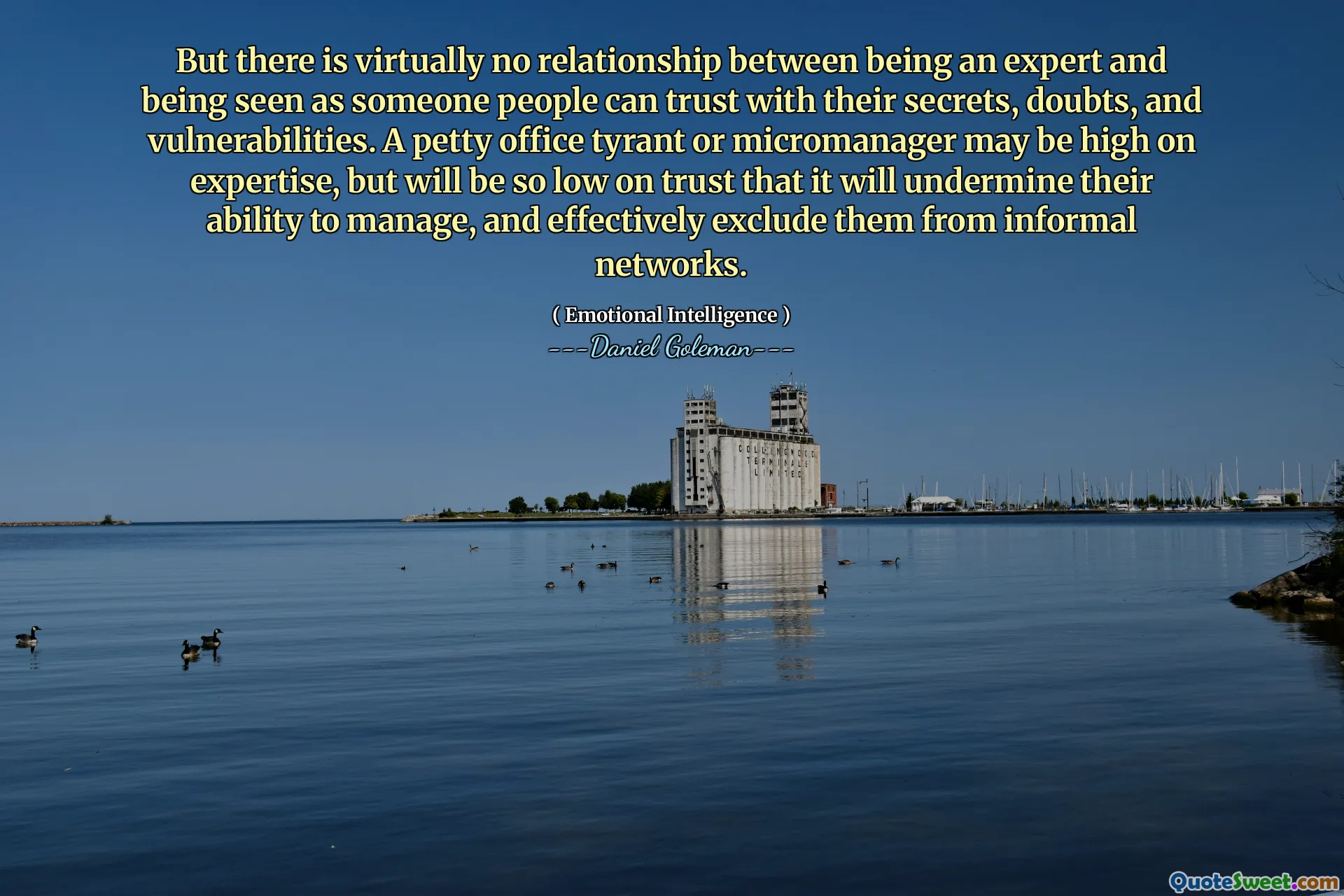
But there is virtually no relationship between being an expert and being seen as someone people can trust with their secrets, doubts, and vulnerabilities. A petty office tyrant or micromanager may be high on expertise, but will be so low on trust that it will undermine their ability to manage, and effectively exclude them from informal networks.
This quote underscores a critical distinction in leadership and interpersonal dynamics that is often overlooked: expertise alone does not guarantee trustworthiness or genuine influence. In many organizational settings, individuals ascend to positions of authority based on their technical skills or knowledge. However, these attributes do not inherently cultivate the trust and emotional connection necessary for effective leadership. Daniel Goleman emphasizes that trust is a fundamental component of emotional intelligence, which involves self-awareness, empathy, and interpersonal skills. When leaders focus solely on their expertise and neglect the human elements, such as understanding their colleagues’ vulnerabilities or fostering open communication, they risk alienating others and creating a hostile environment.
A petty, micromanaging manager might possess exceptional technical skills but fail as a leader if they lack trustworthiness. Such behavior erodes confidence, hampers cooperation, and diminishes the leader's influence within the informal networks that often carry informal weight and support. Trust is built through consistent integrity, genuine concern, and the ability to listen and sympathize with others. Without it, even the most skilled individuals may find themselves ineffective because they have not cultivated the social capital essential for collaboration and influence. This quote invites reflection on the holistic qualities required for true leadership—balancing expertise with emotional intelligence to foster trust, vulnerability, and authentic relationships that drive organizations forward.








